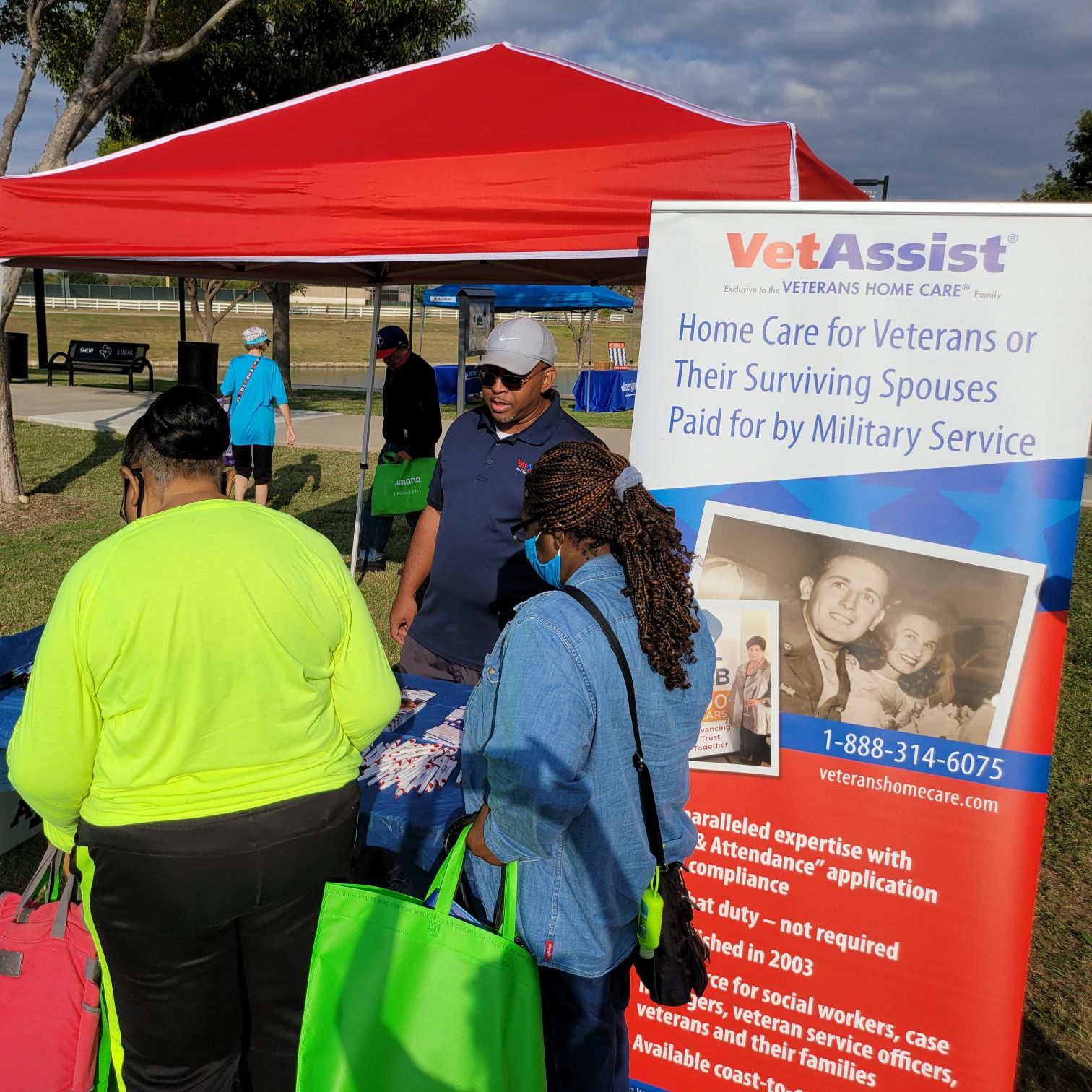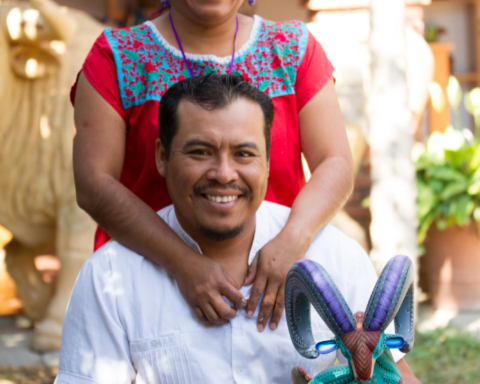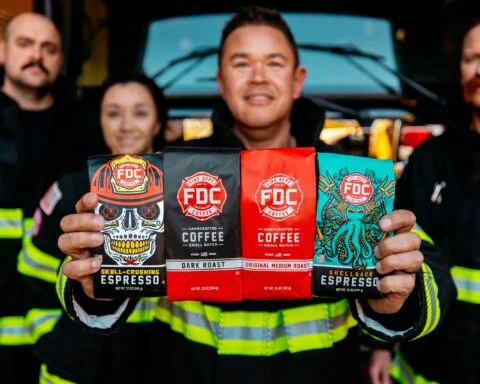A highly successful business can often spawn from a family tragedy. Bonnie Laiderman founded Veterans Home Care in 2003 after watching her mother, Edith, struggle with terminal illness. In her research to find in-home care for her mother, Laiderman learned to her surprise, that as the surviving spouse of a wartime veteran, her mother was eligible for a little-known VA benefit.
Sadly, Bonnie learned about it too late. Her mother passed away before she could take action to help her mom secure additional care. However, this experience inspired Laiderman to help others navigate the VA system and gain access to the benefits and care they deserve. Right before her mother died, Bonnie promised her mom she would start a company to fill this void.
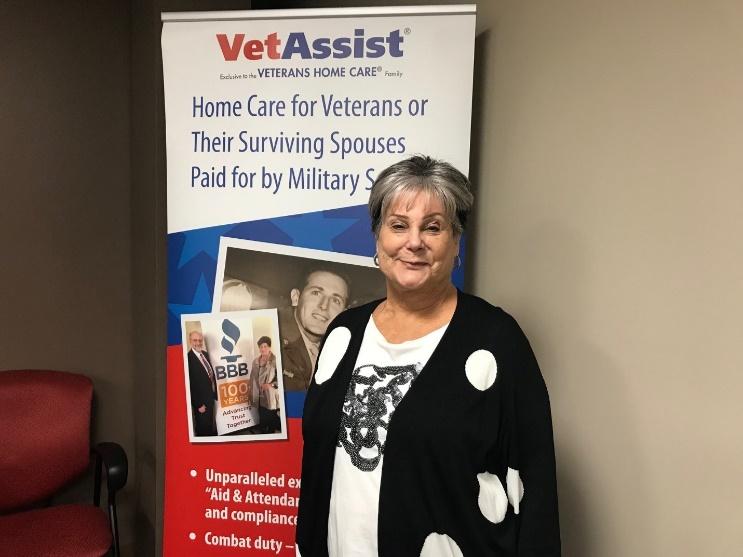
The outcome has grown from a pledge and idea to a national home care company with a unique business model. Veterans Home Care became the unparalleled experts at creating awareness for this little-known benefit called Aid and Attendance. They introduced a special program called VetAssist to help provide home care to not only wartime veterans and surviving spouses who qualify, but also assist senior care providers.
Today, social workers, hospital discharge planners, case workers, rehab specialists, home health care providers and home care agencies nationwide rely on Veterans Home Care for their expertise at accessing VA funds for custodial care.
Business Model: Provide In-Home Care with No Out-Of-Pocket Costs
Essentially, Veterans Home Care’s (VHC) VetAssist Program is in-home care with no out-of-pocket costs. VHC connects these eligible veterans, or their surviving spouses, with a quality home care provider and gets care started right away even before the VA funds arrive.
While most people know the government compensates veterans who are injured or disabled as the result of military service, many are unaware that a pension exists for wartime veterans (or their survivors) who do NOT have a service-connected disability. Overseas service or combat duty is not required. Other restrictions apply, but many who are eligible are unaware these benefits exist.
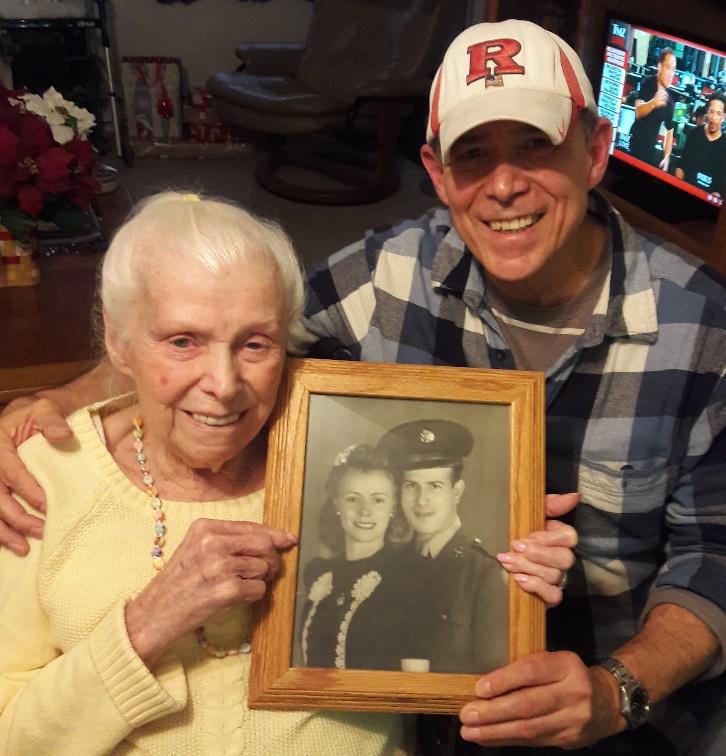
The benefit pays up to about $1,300 to $2,400 per month for assistance with activities of daily living such as bathing, dressing, meal preparation, medication reminders, light housekeeping and more. It can be used for a variety of products and services such as assisted living, medical alert devices and other types of on-going medical or custodial care not covered by insurance or another government program. Those who choose to use the benefit for in-home care are a good fit for the VetAssist Program.
Barriers Bonnie and Her Company Overcame
Over the years, Bonnie faced many challenges. At first, many people thought the VetAssist Program was too good to be true. Then positive word-of-mouth among satisfied clients quickly spread and became the best advertising. Endorsements from home care agencies about the program grew nationwide. Bonnie and her company began earning many awards including the Better Business Bureau’s Torch Award for Ethics. The awards and countless 5-star reviews and testimonials sparked even greater consumer confidence.
The Pandemic Creates Further Challenges
During the height of the pandemic, safety for clients, employees and network home care providers was the utmost concern. Even before the pandemic, the home care industry was experiencing caregiver shortages. The Covid outbreak also exacerbated older adult isolation and loneliness. Meanwhile, demand for in-home care aides grew as many families hesitated to choose senior housing, assisted living communities or nursing homes for their loved ones.
Meeting Covid Challenges with Innovation and Technology
Veterans Home Care management quickly pivoted and equipped all employees with computers and tools to work remotely. The company remained open and the Veterans Home Care’s client service team guided VetAssist clients and their families so they could remain compliant with VA guidelines to continue receiving their monthly benefit checks.
Because Veterans Home Care works in tandem with home care agencies across the country, ideas and strategies were shared to help agency owners and their mutual clients. To that end, Veterans Home Care hosted webinars for their network of contracted home care providers on how to serve seniors safely during Covid19.
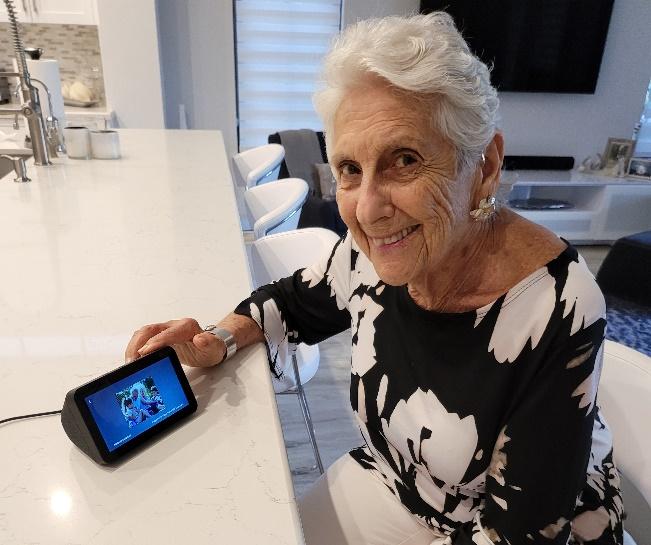
Along the way, as the company grew to more than 100 employees serving 48 states, Bonnie tapped some family members to join her in her mission. These included her husband, Howard, and her nephew Evan Kaltman, who opened the New Jersey office in 2009 and currently serves as chief revenue officer. Recently, as Bonnie wished to reduce her workload, she named her nephew David Laiderman, a proven entrepreneur in the tech industry, to replace her as CEO. David had served Veterans Home Care closely as an adviser before and during the pandemic.
Business Challenges Spawn Additional Opportunities
In order to meet the needs of both those who qualify for VA benefits, and those who did not serve or do not have ties to the military, Veterans Home Care launched SmartCompanion Care LLC in 2020. The system helps reduce isolation and loneliness with games and entertainment, replaces push button medical alert systems and enables voice-activated phone and video calling. It is pre-programmed and customized for each client. Any senior or disabled adult, regardless of military service can purchase a SmartCompanion.
Bonnie’s Advice to Others Wanting to Launch a Business
“First of all, learn as much about your business and your prospective clients as you can. I discovered an unmet need in the marketplace, but that’s only the beginning,” Bonnie says.
“Once you find your niche or idea, then create your business plan that includes your goals and the actions needed to accomplish them. Find out how much money you need before you start.”
“You have to have a passion for the business. Your passion not only keeps you going, it’s contagious. It helps you build a team of people who will help you succeed with your mission.”
“Always line yourself up with people smarter than you. When someone gave me this advice, I was skeptical, but it works.”
“Finally, be open to taking risks that may result in mistakes. Don’t take a business setback personally. You’ll have to make course corrections along the way. Mistakes are lessons learned and if you don’t make mistakes, you’ll never grow.”
Looking forward
While many companies are designing apps and gadgets for seniors, Veterans Home Care has proven expertise in senior care AND digital technology and software development. “We know our clients and many at 80, 90 and 100+ years old don’t know where to begin with smartphones, tablets and computers,” says Bonnie.
“We were successful at helping seniors navigate a complex VA benefit system. Now we’re simplifying the digital world and bringing the benefits of artificial intelligence to seniors in need.”
- Learn to Enjoy Self-care Routine - September 21, 2023
- Jonathan Aufray’s Story - July 29, 2023
- From Public Housing To Ivy League: The Inspiring Journey of Crystaltharrell.com and its Founder - June 7, 2023

